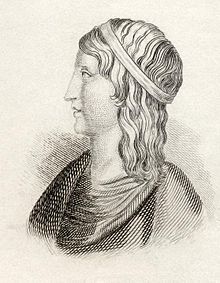Jealousy
The Dead, Their Cell Phones, Jealousy, and Digital Wills
Who gets the digital assets of the dead?
Posted April 18, 2018

Dr. Majid Mustafa, a 48-year-old dentist from Hull, East Yorkshire, was convinced that Ms. Renata Antzcak, his 49-year-old wife, was having an affair. Majid wanted proof. To get this he decided to obtain the date rape drug, GHB, so that he could incapacitate Renata, his wife of 20 years and the mother of their two children. He’d then use her fingerprint to access her phone. The phone, he believed, would provide proof of the affair. Dr. Mustafa had teed up his friend, 50-year-old Robert Lipinski, to fly to Poland to procure the GHB. Majid Mustafa had also used electronic devices to try to video his wife in her car to see when she was meeting her lover.
All of this came out at Dr. Majid Mustafa’s recent trial. Renata has been missing for a year. She disappeared soon after she’d set out on the school run with her 12-year-old daughter in Hull. The police have been treating the disappearance as a murder investigation and Majid Mustafa had been in gaol for six months, pending the trail. But the police case fell through due to lack of evidence. Majid then pleaded “guilty to the charge of encouraging a person to obtain GHB so he could unlawfully administer it to his wife.” He was given a 12-month conditional discharge.
If ever there was a case where there should have been a digital will – a legal document where passwords and passcodes are left with a lawyer for the living - this one is it. A will that indicated who could and who couldn’t access her phones and computers and tablets might have provided the poor Ms. Antzcak with some protection. If Dr. Mustafa, or anyone else for that matter, had known that the phone could be accessed by other members of the family or a lawyer or even by a policeman, they might not have gone looking for that GHB. Digital wills, you might think, could act as a mighty means of protection against felonious acts of jealousy. Maybe we all should have such documents. You just never know when jealousy will strike.
You’d reckon that as a species we’d know this by now. Here’s an old story that will illustrate my point. It dates to the pre-digital era. It shows the crazy lengths to which people will go to uncover unfaithfulness and to assuage their jealousy.
The events happened during a funeral procession. Just as the procession passed the largest group of onlookers in the main street, an old man, who was a mourner and the uncle of the dead man, shouted from the crowd that the grieving widow was no such thing. She’d poisoned her husband. She wanted her husband’s cash so that she could share it with her lover. You know what crowds are like. They love to bully. The crowd turned on the grieving wife even as she shouted back her innocence.
What if I told you that the corpse became reanimated? You don’t have to believe me. But, that’s how the story goes and it still proves how powerful jealousy can be. It was an Egyptian prophet who managed the miracle of reanimation in this tale from ancient Rome. And the corpse began to tell his story, unhappily too because he didn’t want to come back to life even for a moment. I would. The corpse denounced his cheating wife and backed up the accusations made by his uncle. But his wife called the corpse a liar. A corpse a liar? The crowd didn’t know whom to believe until the reanimated body pointed to the man who had guarded his body the previous night while it was still on display. He told them all about the guardian. That was good enough for the crowd and too bad for the wife.

It would have been much easier if the accusers could have looked at the wife’s phone records. If you want to get juice on your relatives just take a look at their cell phones. But of course the crowd couldn’t because that little story is over 1800 years old. No cell phones or tablets then. So they turned to a prophet. This bizarre tale comes from Apuleius’ novel in Latin, The Golden Ass, and it derives from the late second century CE. Here’s the problem: how do you get the dead to speak up for themselves and their relatives? It’s a problem just won’t seem to go away. But maybe we’ve gone some way to solving it with the digital will rather than with prophets. The dentist from Hull wouldn’t have planned to drug his wife and maybe she wouldn’t have disappeared if the family and the law could have had the chance of looking inside that phone.
There was an intriguing report in the London Times in March that tells a bit more about the post-mortem value of phones and tablets and it tells things just a bit more reliably than that ancient Roman tale. Mr. Ian Bond, the chairman of the Law Society Wills and Equity Committee (whatever that is I just can’t tell you) claimed he’d heard of “cases where family members were placing the finger of recently deceased persons” who were still “slightly warm” on mobile phones’ touch buttons to unlock them. They are apparently using even the cold fingers of dead relatives to try to unlock phones, he stated. This is, so Mr. Bond amicably suggested, “to try and retrieve photographs, messages and social media accounts from deceased relatives.” The sinister invasion (Ian Bond speaks of “best intentions”) mostly doesn’t work. The phones need an electric current to be running in the unlocking finger. That only happens with a live hand.
Can you trust the motives of these relatives who want to get the cold fingers of their dead loved ones onto the touch ID’s of their phones? Mr. Bond is pretty sanguine about the motives of these families: “We are all very used to dealing with dividing physical things, but most people's lives are now made up of digital, not just physical, assets.” Mr. Bond is correct and he’s speaking here of the need for a digital will. I can’t help but wonder, after Dr. Majid Mustafa and the GHB, whether Mr. Bond’s families aren’t after more than just gramp’s photos. Maybe our lives are now made up of digital assets as well. And digital wills could act as a mighty means of protection against these felonious acts of jealousy. But, really, isn’t gramps entitled to a little post-mortem privacy? Even if he is languishing in Autumn Lodge there may be things he’s writing or viewing that posterity has no right to know about.


